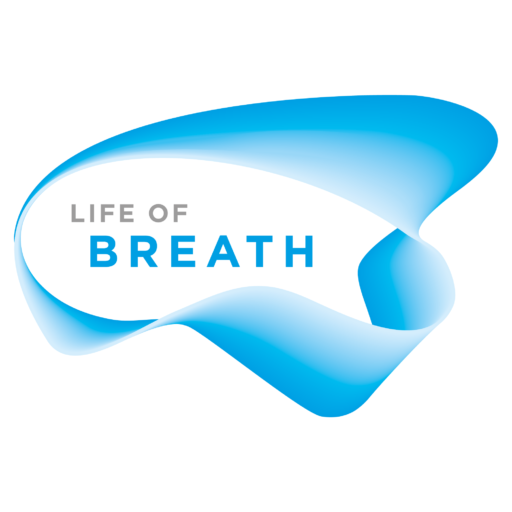‘All his heart was cold’
In honour of the Glastonbury Festival, Jess Farr-Cox, Project Manager (Bristol) writes a post with an Arthurian flavour (see also ‘Arthur’s ‘labouring of the lungs’ in Tennyons’s Idylls of the King’):
At our March meeting of the Life of Breath Bristol reading group, we examined some of Aristotle’s thoughts on respiration, which he considered necessary primarily as a means of preventing the heart (and therefore the soul: ‘The soul is ignited in the heart’, part 22)[1] from overheating:
For when the breath is not let out and the heat accumulates too much then we need to respire, and to respire we must draw in the breath. When hot, people breathe rapidly, because they must do so in order to cool themselves.[2]
Disagreeing with Timaeus (as described by Plato, in the reading group text for April) that breathing brings heat into the body, Aristotle is brusque:
It is also nonsense that respiration should consist in the entrance of heat, for the evidence is to the contrary effect; what is breathed out is hot, and what is breathed in is cold. When it is hot we pant in breathing, for, because what enters does not adequately perform its cooling function, we have as a consequence to draw the breath frequently.[3]
Later in his discourse, Aristotle suggests that those who become too hot (from insufficient breathing, presumably) can die of exhaustion: ‘destruction due to lack of refrigeration is called suffocation, and whatsoever is thus destroyed is said to be suffocated’ (part 15), and that finding a balance between coldness and heat is the key to bodily health.[4] We can see a similar idea of the cooling (and healing) power of breathing in Susan Hill’s detective novel A Betrayal of Trust. Jocelyn is diagnosed with motor neurone disease in the opening pages, and although this will affect her entire body, much of her fear is centred on her throat and her ability to breathe; in many ways, she seems to think of it as a lung problem: ‘There was to be disability, clumsiness, the closing down of everything – movement, speech, swallowing. Breathing.’ Similarly, another character, Kenneth (elderly and suffering from Parkinson’s) wakes
out of a nightmare that he was drowning and could not breathe. Awake, he still could not breathe. His lungs seemed to be full of water, his throat was tight.[5]
We can find echoes of Kenneth’s fear in Tennyson’s Idylls of the King; the final idyll was our June text for the reading group, as suggested by Elsa Hammond, who then lead the discussion:
But, as he walked, King Arthur panted hard / Like one that feels a nightmare on his bed / When all the house is mute.[6]
As he wakes, Kenneth is comforted by the thought of his wife: ‘But there was oxygen. There was Rachel’, ignorant of the fact that, at that moment, Rachel is elsewhere, playing Guinevere to his Arthur and meeting the man she has fallen in love with a few pages earlier, Simon. Simon is the detective, and therefore in some way our hero, although Hill is very careful to be even-handed with each point of the love-triangle. Simon is also experiencing a profound need for Rachel, and again Hill compares her to air, in the moment immediately before her telephone rings to summon her to her husband’s bedside: ‘Her eyelids had the faintest blue tinge, like the eyelids of babies. He breathed her.’
Throughout the book, Jocelyn contemplates traveling to Switzerland to end her life, and recalls her mother’s visit to a Swiss tuberculosis clinic:
A terrace set out with chairs and loungers, so that patients, well wrapped, could be outside in the glittering sun and air, breathing it, breathing it, healing their lungs … she had brought a postcard back, a watercolour painting of the clinic in the mountains, and Jocelyn had gazed at it for days … taken it down and imagined herself into that impossibly white landscape, touching that sparkling snow, breathing in the ice-cold air.[7]
My grandmother Vina spent large parts of her childhood in Switzerland, where her stepmother was undergoing treatment for tuberculosis at a series of such clinics, and where Vina seems to have passed her time in Switzerland ‘getting out of breath in the freezing air’, as she put it in January 1929, having taken up various Alpine sports (skiing, skating, luge and bobsleigh). The understanding of those around her as to the causes of disease seems rudimentary at best (from her diary, March 8th 1929, in bed with chickenpox: ‘Couldn’t sew as they thought that Alice had got a cold that way’; a few pages later she expresses surprise that all her friends seem to have caught chickenpox from her). She also notes in April 1930, shortly before her stepmother’s death, that she (Vina) ‘smoked a cigarette after tea. Lovely windy day’. Her stepmother’s condition fluctuates feebly for the eighteen months recorded in her diaries, expressed variously as ‘Mumsie better’, ‘Mumsie not quite so well’ and indeed ‘Mumsie’s curtain caught fire and filled her room with smoke’.
Throughout A Betrayal of Trust, Susan Hill plays with various ideas of coldness, death and what my grandmother’s diary calls ‘getting so cold that [one] could hardly move’. The central murders (of two women, their skeletons exposed by a flood sixteen years later) are of course ‘cold’ cases; at the very end of the book, Simon is told, ‘Don’t believe a word of it. It [burying the two bodies] almost killed us as well. Cold blood? I don’t know what that means.’[8] Jocelyn notes on entering the Swiss clinic ‘how cold the room was’;[9] earlier in the story, she discusses her illness with her daughter shortly after diagnosis:
‘The sun’s gone,’ she said. ‘Are you cold?’ / ‘No. Is that a symptom? Feeling cold?’ / ‘I don’t know. I suppose it may be eventually, if one can’t move.’[10]
Aristotle puts this connection differently: ‘Finally, when motion is no longer possible, the breath is given out and death ensues’.[11] The two murders in A Betrayal of Trust are unplanned (one almost an accident), and death comes very quickly. Both victims seem curiously fragile (Aristotle again, part 23: ‘It is just as though the heart contained a tiny feeble flame which the slightest movement puts out.’).
Finally, Aristotle notes in part 10 of ‘On Respiration’ that, ‘life and death are bound up with the taking in and letting out of the breath’, but there is no last breath for Jocelyn or Kenneth, who are both very much alive at the end of A Betrayal of Trust. Similarly, there is no final breath for King Arthur in ‘The Passing of Arthur’. Arthur groans, sighs and breathes in all manner of ways earlier in the poem (‘And answer made King Arthur, breathing hard: / ‘My end draws nigh; ‘tis time that I were gone’)[12], but he does not die of the blow Mordred has dealt him. Instead, he sails to ‘the island valley of Avilion’, where ‘I will heal me of my grievous wound’. Nevertheless, Tennyson returns to the link I have been speaking of between breathing, coldness and death in the next lines that Arthur speaks:
Make broad thy shoulders to receive my weight, / And bear me to the margin; yet I fear / My wound hath taken cold, and I shall die.[13]
[1] See also ‘life and the presence of soul involve a certain heat’ (Aristotle, ‘On Respiration’, part 14). We might compare this to Tennyson describing the mist in which Arthur’s final battle with Mordred is fought: ‘A deathwhite mist slept over sand and sea; / Whereof the chill, to him who breathed it, drew / Down with his blood, till all his heart was cold’. Tennyson, Idylls of the King, ‘The Passing of Arthur’, lines 95-97.
[2] Aristotle, ‘On Respiration’, part 10.
[3] Aristotle, part 11.
[4] The Book of Revelation offers a quite different use of the balance between hot and cold in chapter 3, using it as a metaphor for indecision (as does Muriel Spark in The Mandelbaum Gate. I have written about this elsewhere). The passage reads as follows: ‘I know of thy doings and find thee neither cold nor hot; cold or hot, I would thou wert one or the other’.
[5] Susan Hill (2011) A Betrayal of Trust (London: Chatto & Windus), p. 290.
[6] Tennyson, lines 344-350. The poem goes on to describe Sir Bevidere as ‘clothed’ in Arthur’s breath.
[7] Hill, A Betrayal, p. 174.
[8] Hill, A Betrayal, p. 354.
[9] Hill, A Betrayal, p. 182.
[10] Hill, A Betrayal, p. 49.
[11] Aristotle, part 23.
[12] Tennyson, ‘The Passing of Arthur’, lines 330-331.
[13] Tennyson, ‘The Passing of Arthur’, lines 332-334.




3 Comments
Pingback: Who was chasing him? | Life of Breath
Pingback: Taking a deep breath – Life of Breath
Pingback: ‘The cetaceans may give rise to some complexity’: breathlessness in whales and dolphins – Life of Breath